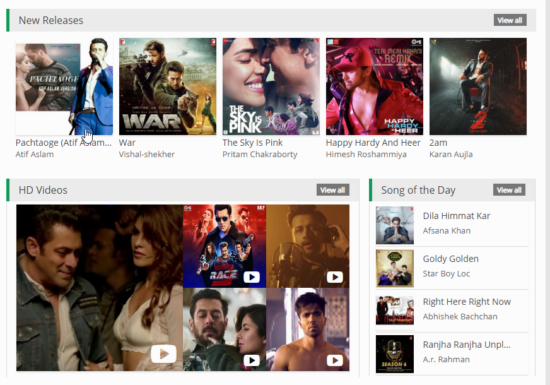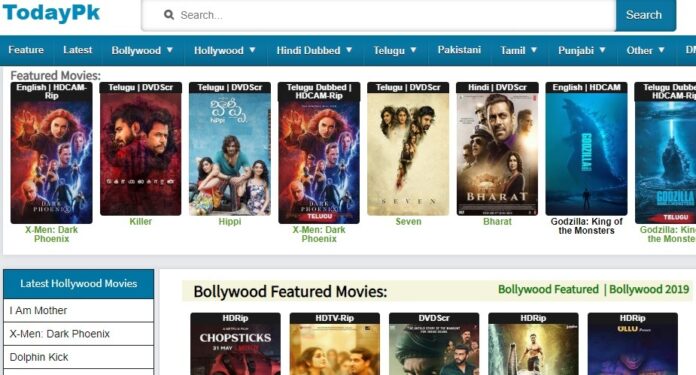When businesses, developers, and individuals are looking for a Content Delivery Network (CDN), DDoS protection, or a web performance boost, Cloudflare often comes to mind. But while Cloudflare is the market leader in many respects, it’s not the only game in town. Whether you’re searching for better customization, pricing, or unique features tailored to specific needs, there are strong alternatives that might suit your use case even better.
This article explores the top Cloudflare alternatives and breaks down which solution might be the best fit based on different goals and priorities. We’ll examine major platforms and compare them based on performance, security, cost, ease of deployment, and developer-friendly features.
1. Fastly – Best for High-Performance, Developer-Centric Workloads
All Heading
If performance and modern edge architecture are your top priorities, Fastly is a strong contender. Built with developers in mind, Fastly allows real-time configuration changes and offers an advanced set of tools for edge computing. It excels at handling dynamic content, caching strategies, and live streaming use cases.
Key Features:
- Real-time caching and instant purging
- Powerful edge computing capabilities
- Real-time logging and analytics
- First-class API and developer documentation
Ideal For: Modern SaaS apps, real-time applications, dev-centric teams, and media platforms
Why choose it? If you’re working with complex APIs or building a JAMstack or microservices architecture, Fastly gives you full control with lightning-speed performance.

2. Akamai – Best for Enterprise-Grade Security and Global Reach
Akamai has been in the CDN business long before Cloudflare existed and remains a go-to choice for Fortune 500 companies. Known for its massive global network, Akamai handles 30% of the world’s internet traffic. However, its platform is more enterprise-oriented and may require technical assistance to fully leverage.
Key Features:
- Comprehensive web and application security solutions
- Global CDN with thousands of edge nodes
- Advanced traffic management and load balancing
- Bot management and threat intelligence
Ideal For: Large-scale enterprises, government agencies, financial institutions
Why choose it? If security and reliability on a global scale are your top concerns, Akamai provides a bulletproof infrastructure capable of handling even the most demanding websites and applications.
3. Bunny.net – Best for Startups and Budget-Conscious Users
Formerly known as BunnyCDN, Bunny.net is a rising star in the CDN market offering powerful features at a fraction of the cost. It’s particularly popular among startups, small businesses, and independent developers looking for reliable performance without enterprise-level pricing.
Key Features:
- Flexible pull zones and tiered cache options
- Simple, intuitive dashboard
- DDoS protection included in all plans
- Video delivery and storage add-ons
Ideal For: SMBs, blogs, ecommerce stores, video content platforms
Why choose it? Bunny.net provides an easy entry point into CDN services, offering smarter caching and good analytics in a clean interface. It’s an ideal pick if you want efficient performance on a budget.

4. Amazon CloudFront – Best for AWS-Centric Infrastructures
If your infrastructure already lives in AWS, CloudFront is a logical integration. Amazon CloudFront is tightly integrated with AWS’s entire suite and can draw from services like S3, EC2, Lambda, and WAF to create a robust cloud-native delivery and security experience.
Key Features:
- Deep AWS service integration
- Highly configurable policies and behavior settings
- Global low-latency delivery
- Pay-as-you-go billing
Ideal For: DevOps teams, enterprise software, deep AWS stacks, SaaS applications
Why choose it? For teams already relying heavily on Amazon Web Services, CloudFront provides unmatched synergy and the ability to automate deployment pipelines with ease.
5. StackPath – Best for Low-Latency Delivery in North America and Europe
StackPath positions itself as the next-gen edge platform for content delivery, offering performance improvements in edge zones where latency is critical. It combines CDN functionality with edge computing and Web Application Firewall (WAF) in a single package. Its coverage is more focused—primarily North America and Europe—making it a great option for regional projects.
Key Features:
- Localized edge computing
- WAF & DDoS protection included
- Cloud monitoring and analytics
- User-focused pricing for smaller dev teams
Ideal For: SaaS startups, API delivery, and applications targeting Western markets
Why choose it? StackPath’s edge-focused approach makes it a potent choice where milliseconds make a difference, such as in real-time SaaS tools and chat applications.
6. Nginx + ModSecurity – Best for DIY Security and Self-Hosting Enthusiasts
If you want to avoid third-party platforms and have full control, combining Nginx with ModSecurity can be a good Cloudflare alternative. This solution is ideal for developers who want tailored rule sets, complete data ownership, and are comfortable managing security policies at the server level.
Key Features:
- Custom WAF rules with ModSecurity
- Reverse proxy and load balancing capabilities
- Entirely self-managed
- Community and enterprise support options
Ideal For: System administrators, developers with hosting experience, privacy-focused applications
Why choose it? For those who prioritize customization and control over convenience, this stack offers extensive flexibility and builds a deep understanding of web traffic management.
7. Imperva (formerly Incapsula) – Best for Advanced Web Security
Imperva excels at cybersecurity. While not purely a CDN-focused company, its cloud-based application delivery services include CDN, DDoS protection, load balancing, and a best-in-class Web Application Firewall.
Key Features:
- Machine learning-based attack mitigation
- Granular traffic inspection and bot protection
- Integrated CDN with performance optimization
- Security analytics and reporting dashboards
Ideal For: High-risk industries like finance, healthcare, and e-commerce
Why choose it? If you need advanced threat protection with compliance in mind (HIPAA, PCI-DSS), Imperva provides peace of mind with enterprise-class tools.
Final Thoughts: Matching the Tool to the Task
In the end, the best Cloudflare alternative boils down to your individual needs and use case. Here’s a quick look at which platform suits whom best:
- Fastly: For real-time, performance-intensive and developer-driven applications
- Akamai: For global enterprises and top-tier security needs
- Bunny.net: For individuals, startups, and budget-friendly performance
- Amazon CloudFront: For AWS-native development teams
- StackPath: For low-latency edge performance in US and EU
- Nginx + ModSecurity: For self-managed, highly customizable solutions
- Imperva: For businesses prioritizing security and compliance
Remember, no “one-size-fits-all” solution exists in web infrastructure. What works for a global ecommerce giant might overwhelm a small blog with complexity and cost. Understand your traffic, security risk profile, and scalability needs first—then map them to the best CDN and protection strategy you can afford and maintain.
With the rich ecosystem of web performance tools available today, you’re never limited to just one provider. Explore, test, and choose the fit that keeps your users happy and your backend













Recent Comments